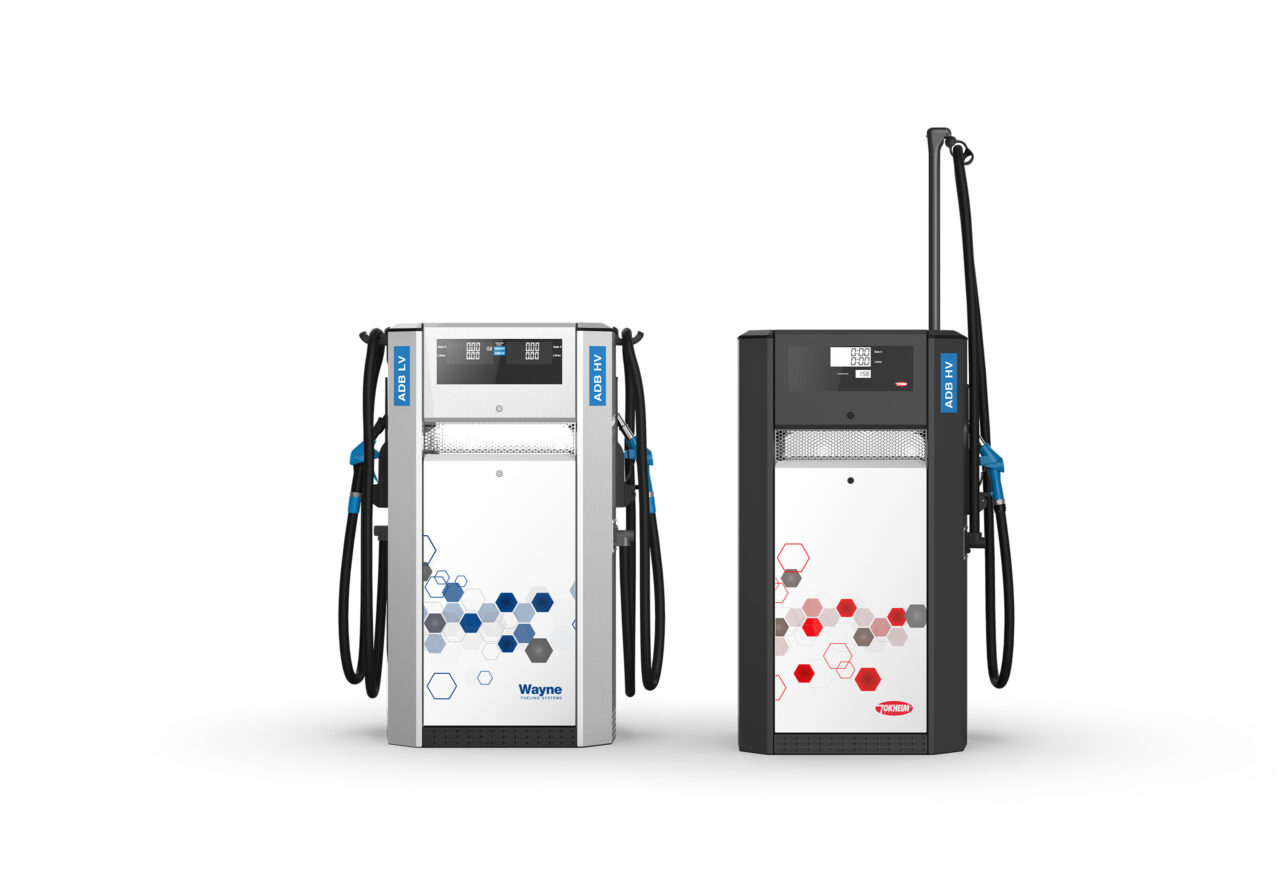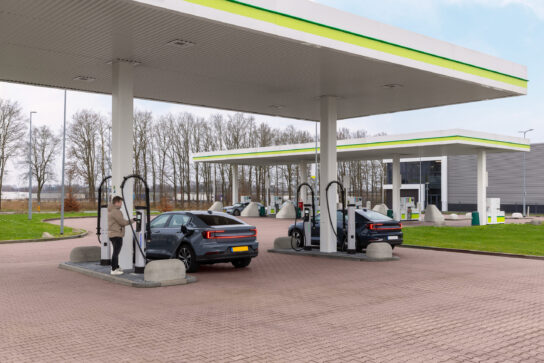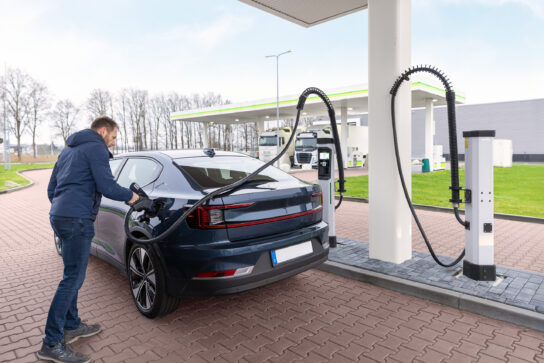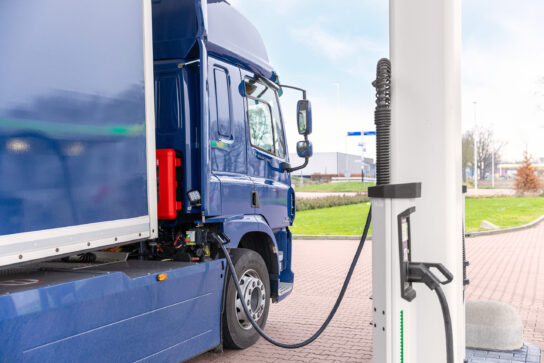AdBlue® is a vital contributor to reducing diesel vehicle exhaust emissions, but how should it be handled and stored safely? And how will the emergence of new energies impact usage?
For many UK companies, the use of AdBlue® is a legal requirement when running heavy goods vehicles (HGVs), vans or cars powered by diesel fuel. Therefore, it makes perfect sense for fleet operators to invest in practical storage solutions and dispensing equipment on site.
To mitigate the harmful effects of diesel exhaust fumes, the European Commission imposed regulations that stipulated all diesel vehicles built from 2015 onwards must be compliant with the Euro 6 emission standard. The act focuses on restricting the emission of nitrogen oxides (NOx) and particulate matter from diesel exhausts. NOx is a poisonous gas that can damage the respiratory system, reduce lung function and increase allergen exposure, consequently, AdBlue® plays a crucial role in neutralising the toxins and rendering diesel emissions harmless.
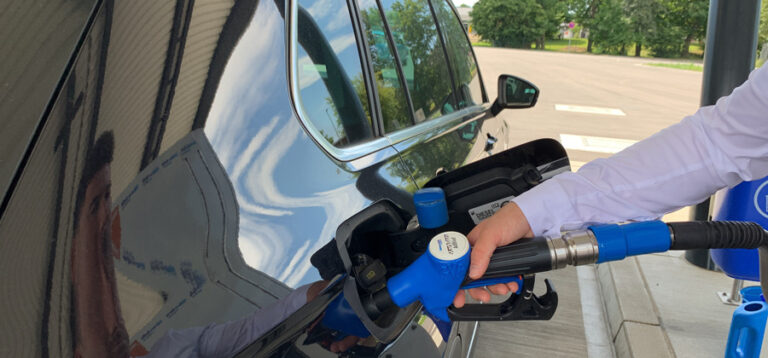
What is AdBlue®?
The term AdBlue® is a worldwide trademark of the German Association of the Automotive Industry (VDA) relating to the production of diesel exhaust fluid (DEF) in line with ISO 22241 specifications.
AdBlue® is a colourless liquid with a pungent odour, comprising one-third aqueous urea solution and two-thirds deionised water. Contrary to popular opinion, the urea in AdBlue® is not a by-product of animal urine but instead is made from ammonium cyanite, a substance that when heated forms crystalline urea that is completely synthetic.
While AdBlue® is non-hazardous, non-toxic and non-flammable, it is mildly corrosive and should always be stored in rust-proof containers out of direct sunlight.
How does AdBlue® work?
AdBlue® is injected into the catalyst of an advanced active emissions control technology system, known as selective catalytic reduction (SCR). The high temperatures of the exhaust gases cause the AdBlue® to vapourise into its two constituent components – ammonia and carbon dioxide. Inside the SCR, the ammonia is blended with the exhaust fumes, provoking a chemical reaction that converts NOx into nitrogen, water and a small amount of carbon dioxide (CO2). As a result, the gases emitted are less harmful to the environment and our health.
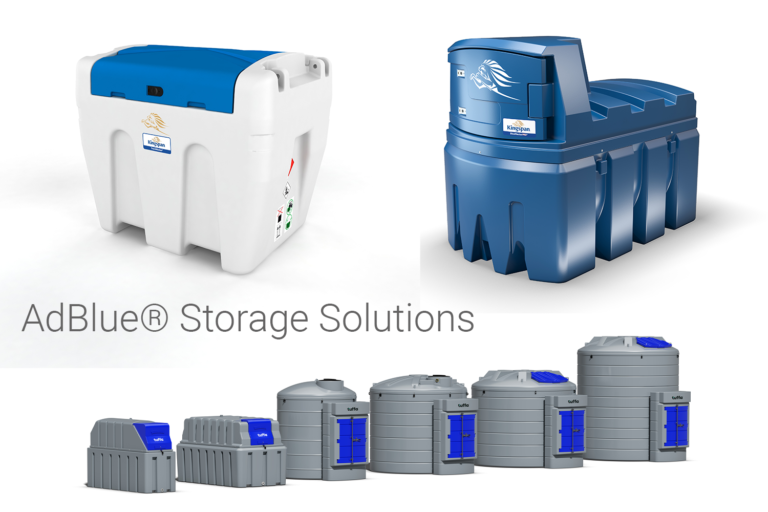
Storing AdBlue® safely
Typically, AdBlue® storage tanks are constructed out of stainless steel, which has corrosion-resistant qualities, bunded (double-skinned) and predominantly installed above ground. Bunded tanks differ from their single-skinned counterparts because they have a secondary containment tank in the form of an outer skin (the bund). Consequently, any leaks from the main storage tank will be safely contained within the interstitial space created by the bund, preventing the AdBlue® solution from spilling out on site. That being said, if AdBlue® were to escape, it would not cause any damage to the environment and there are currently no penalties associated with the solution going to ground.
Keeping AdBlue® safe from contaminants will help to maintain its quality, prevent product degradation and avoid any damage to the vehicle’s Selective Catalytic Reduction (SCR) system. The SCR system works to improve fuel efficiency and reduce harmful emissions; it is incredibly sensitive, so any impurity that enters the system can cause damage and limit its efficiency.
AdBlue® spillage advice
If AdBlue® is accidentally discharged, it should cleaned up as soon as possible by mopping up the spill and rinsing the area thoroughly with water to prevent crystallisation of the fluid. Even though AdBlue® isn’t hazardous, it is advisable to wear gloves when cleaning up spills to prevent any potential skin irritation.
Since AdBlue®’s urea-based formula contains ammonia, which can be corrosive to a range of metals, it is best practice to avoid pouring AdBlue® directly down the drain
The future of AdBlue®
With the advance in natural gas, hydrogen and electric vehicle technologies and the government’s sharp focus on net-zero, many speculate that the dependable diesel engine is on the way out. However, given the fact that as yet, these emerging energies are still a relatively new concept for bigger and heavier vehicles, diesel fuel will likely have a vital role to play in modern business fleets for many years to come.
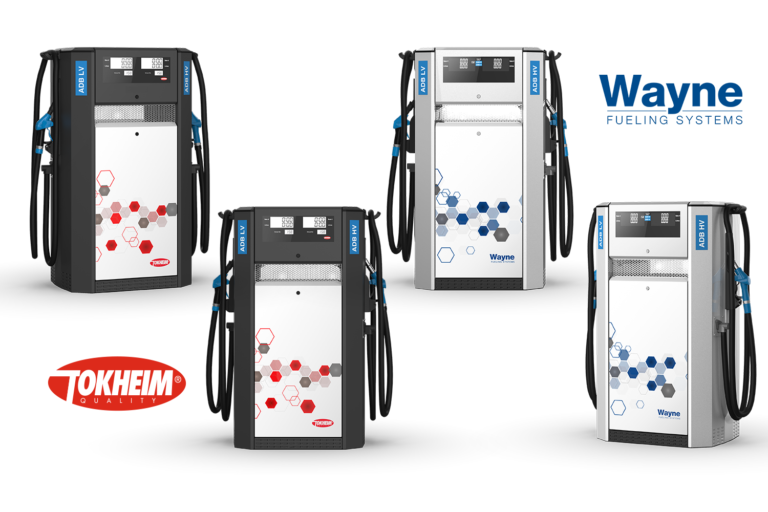
How can TSG help fleet operators?
TSG UK can support businesses looking to participate in the transformation from traditional fossil fuels to new, greener fuelling solutions including electricity, gas and hydrogen.
However, TSG will continue to sustain the existing fleet fuelling networks, including the supply, installation and maintenance of a wide range of AdBlue® dispensers and container solutions to suit any size of fleet or usage requirements. From plastic intermediate bulk containers (IBCs) to integrated steel tank versions (twin compartments for diesel and AdBlue®) complete with dispensers. All of the TSG AdBlue® dispensing solutions are ISO 22241-compliant
TSG’s AdBlue® tank and pump servicing, maintenance and repairs
TSG UK provides high-quality AdBlue® tank repair and maintenance services. From transfer pump problems and hardware issues to damaged delivery hoses and faulty meters, TSG’s highly skilled engineers have a wealth of experience in installing, repairing and servicing all types of AdBlue® storage tanks and pumps.
For more information on TSG UK, its products and solutions, please visit: https://www.tsg-solutions.com/uk/
Author: Cheryl Ashton
